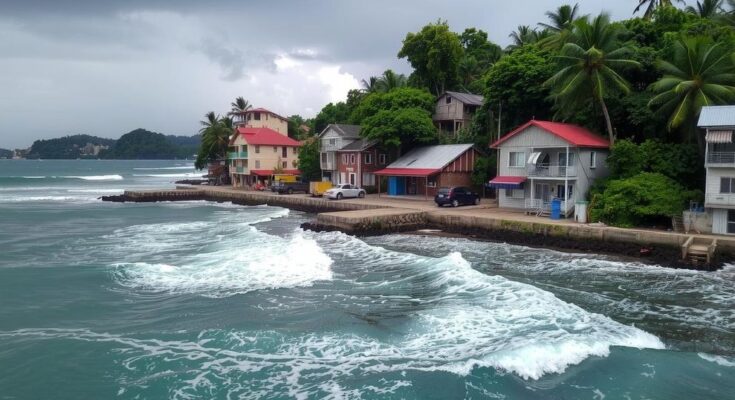Tropical Cyclone Chido has left at least 14 dead and over 250 injured in Mayotte, prompting fears of a significant humanitarian crisis as emergency services work to rescue survivors. With potentially hundreds more fatalities expected, Chido is acknowledged as the worst storm to strike Mayotte in nearly 90 years, leading to calls for immediate governmental action.
Tropical Cyclone Chido has wrought severe devastation on Mayotte, a French territory in the Indian Ocean, resulting in at least 14 confirmed fatalities and over 250 injuries. Emergency services have mobilized to search for survivors amidst the debris of homes, hospitals, and schools. With Chido being the most powerful storm to strike Mayotte in nearly a century, forecasters noted wind speeds surpassed 124 miles per hour, leading to concerns of a humanitarian crisis as officials suggest the death toll may rise significantly. “I think that there will be several hundred” deaths, warned François-Xavier Bieuville, the top French representative in Mayotte, while he added, “Maybe we will be closer to a thousand, maybe several thousand.” France’s interior minister, Bruno Retailleau, indicated that establishing an accurate death toll could take several days, as President Emmanuel Macron convened an emergency meeting to address the crisis.
Mayotte, an archipelago situated in the Indian Ocean, is recognized as France’s poorest territory. The region faced catastrophic damage from Tropical Cyclone Chido, marking a historic weather event as the most severe storm in 90 years. The cyclone not only impacted Mayotte but also claimed lives in Mozambique, demonstrating the storm’s widespread devastation. Heightened emergency responses were necessitated due to the storm’s impact on infrastructure and public safety.
In summary, Tropical Cyclone Chido has had a catastrophic effect on Mayotte, with multiple casualties and extensive damage reported. The government’s response, including emergency meetings and rescue operations, underscores the seriousness of the situation. As the figures may still rise, it is crucial for continued relief efforts to assist those affected and mitigate the impending humanitarian crisis.
Original Source: www.nytimes.com




